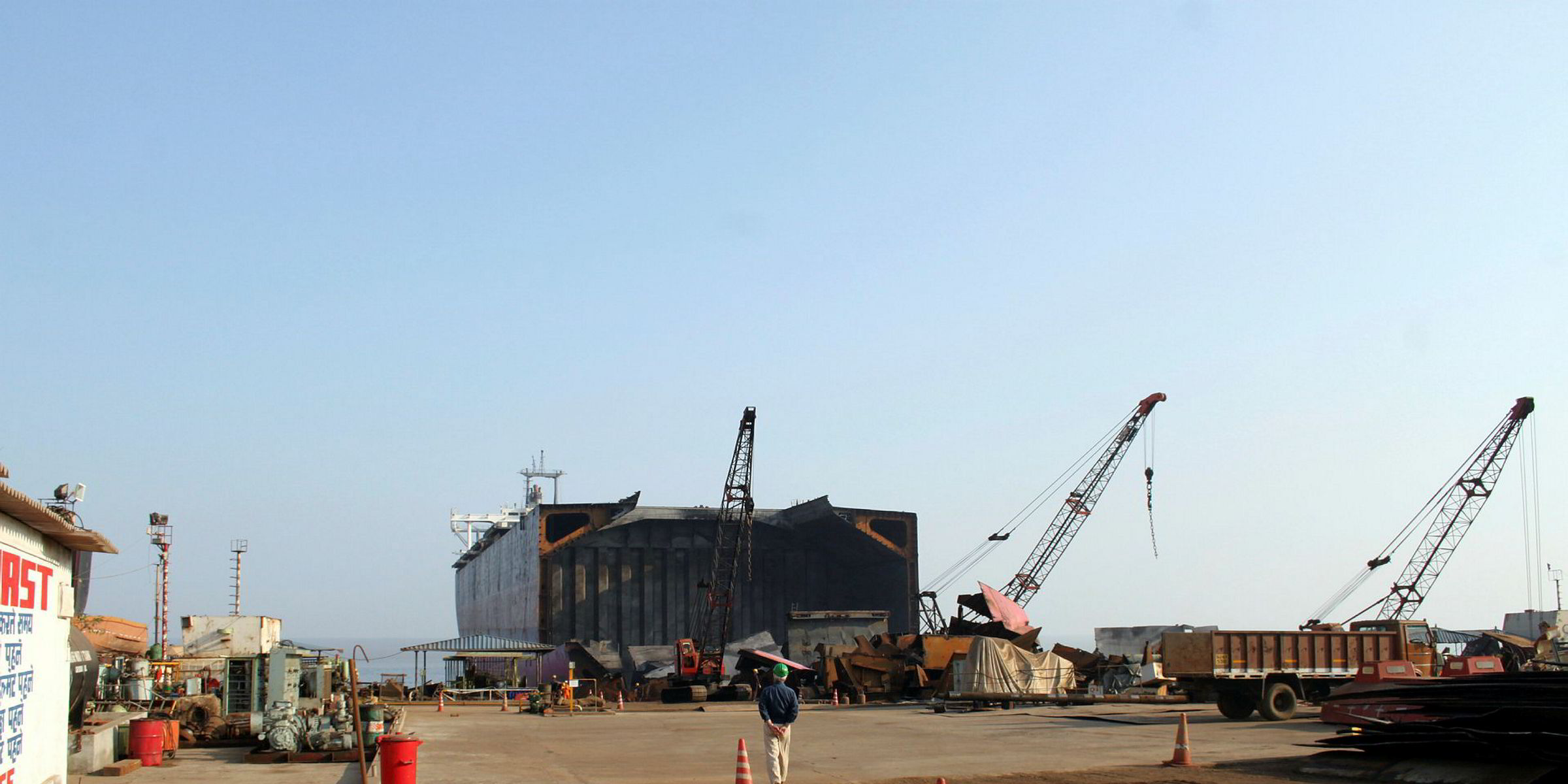All eyes are now on Tsuneishi Shipbuilding's reported $300m investment in a new 'green' shiprepair yard in the Philippines.
The project marks the biggest single investment in a recycling facility since 2009, when the Hong Kong Convention for the Safe and Environmentally Sound Recycling of Ships (HKC) was agreed.
ClassNK has already approved the proposed yard plans and demolition method as being compliant with the HKC, which has yet to enter into force.
However, both Tsuneishi and the Japanese classification society decline to discuss the project.
TradeWinds understands that a plot of three square kilometres has been secured for the facility in the town of Hinoba-an on the island Negros. Negros neighbours Cebu, where Tsuneishi owns a shipbuilding plant.
Experts say that the scale of the investment suggests that Tsuneishi could be planning to build both a dry dock and quayside to dismantle ships, a system that is used in China and approved under the HKC.
Tsuneishi is also likely toinstall a hazardous material treatment, storage and disposal facility costing up to around $15m, they add.
The investment fits with Tsuneishi’s plan to develop new business lines outside of Japan and to expand in the Philippines.
It also comes in response to encouragement from Japanese shipowners, Tsuneishi’s main customers. They are seeking to secure recycling facilities that are compliant with the HKC, as well as Basel and European waste export regulations.
Although such facilities exist in China, they are not fully committed to the recycling market. In addition, Japanese owners are wary of becoming too reliant on its Asian neighbour for recycling.
The Negros project is attracting interest from rival shiprecyclers. They are trying to gauge whether or not the trend towards green recycling, combined with increasingly strict environmental regulation, justifies an investment on this scale.
Green recycling yards generally buy from shipowners at a discount. But the market discount for green recycling is by no means clear or fixed. Green discounts vary from $5 per ldt to $25 per ldt, depending on the market.
And as more demolition plants claim to be green recycling facilities, brokers say it will start to affect pricing. Many of these beaching yards are in Southeast Asia.
More than 30 HKC compliance certificates have been issued by ClassNK and Italian classification society Rina, largely to Indian beaching yards.
One broker told TradeWinds: “With more and more facilities becoming green it will only be a few more years before the vast majority, certainly within India, will be recycling in accordance with the HKC. It will be then that the [green discount] allowance will be reduced because it will bring back the 'competitiveness' of the end receivers and cash buyers.”
The Japanese government is preparing to provide overseas aid to India to help even more beaching yards meet HKC standards. And the momentum towards improving facilities is even starting to pick up in Bangladesh.
India's beaching yards have been able to upgrade to the HKC standards with very little investment. Measures such as installing an impermeable floor cost less than $1m, compared with the reported $300m cost of Tsuneishi’s new facility.
But experts suggest that Tsuneishi’s more advanced facility in the Philippines could still find a financial advantage in the market.
The European Union's (EU) Ship Recycling Regulation, which enters into force next year, does not appear to recognise beaching yards.
If Tsuneishi’s Negros facility can get onto the EU's list of approved recycling facilities, then it will be well placed in the market for recycling European-flag vessels.
The price paid in the local market for recycled steel will also be important for the financial viability of Tsuneishi’s project.



